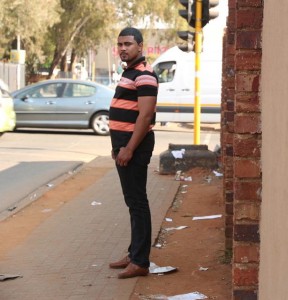Since 34 striking miners were shot and killed in Marikana in August last year, South African police have been in the spotlight. Facts and Opinions welcomes aboard Ruth Hopkins, a senior journalist with the Wits Justice Project in Johannesburg, South Africa, to explain.
An excerpt of her dispatch in the Justice section:

Steven Mothao was walking back home from a piece job on August 10, 2010, through Fordsburg in Joburg. Out of nowhere, three police officers appeared and pushed him against a wall.
While onlookers gawked, the police officers slammed Mothao into a police van. He was detained in a police cell for 22 hours. For the first 14, he wasn’t offered a glass of water. Then Mothao was out on the street again.
The police officers never identified themselves, they did not have an arrest warrant, and they did not inform Mothao of the reasons for his arrest. He sued the Minister of Police for damages and was awarded R150 000 in March.
Since 34 striking miners were shot and killed in Marikana in August last year, South African police have been in the spotlight and at the heart of a debate that has the nation grappling for an answer to the question: what has gone so horribly wrong?
Seminars on police brutality were organized and opinion pieces penned. Public interest naturally gravitated to high-profile cases such as Marikana, the police killing of taxi driver Macia, and the corrupt Cato Manor police squad …
Log in to read Hopkins’ story, available to subscribers, or with a $1 day pass to Facts and Opinions.

